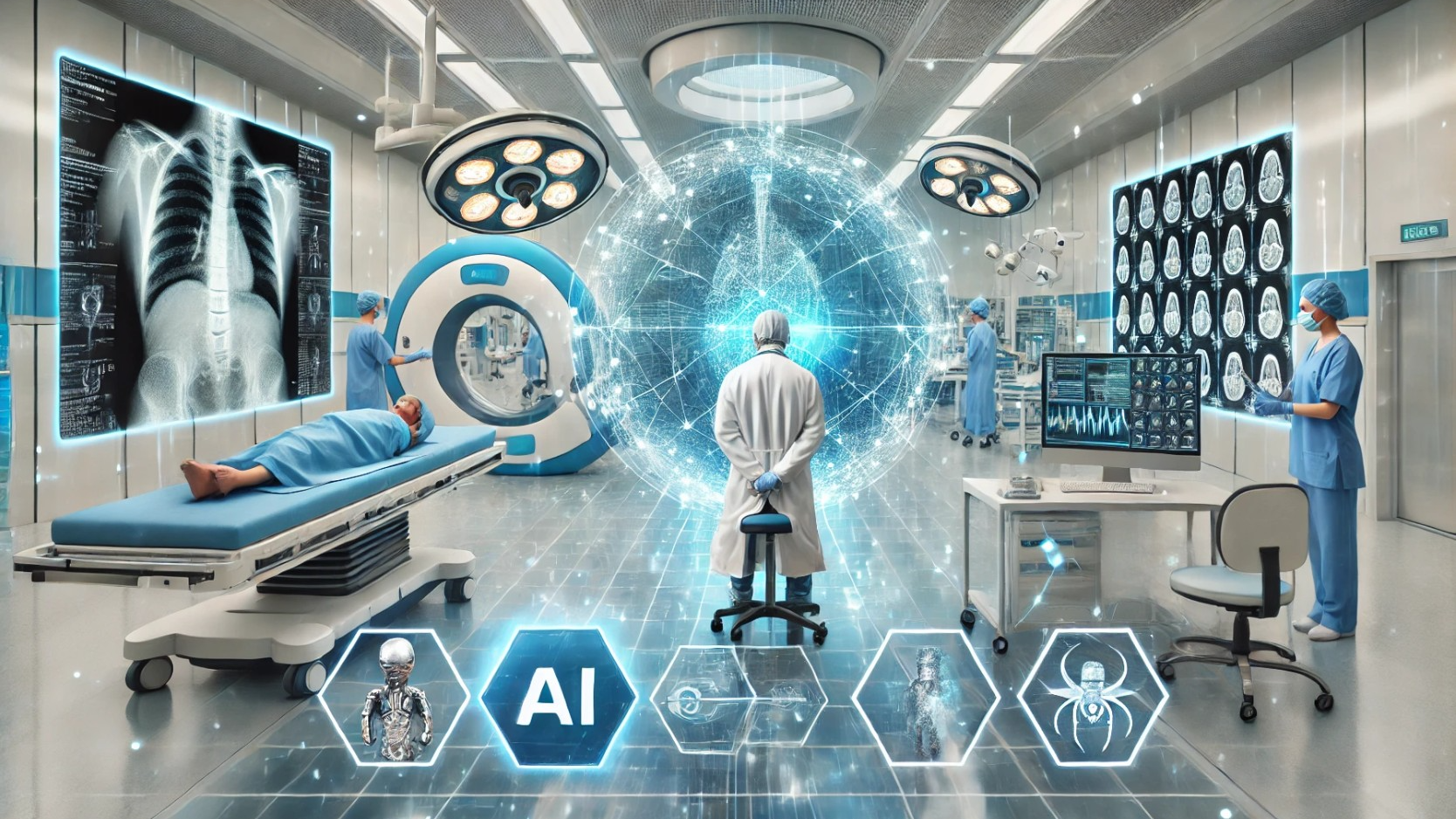The Role of AI in Medicine: Revolutionizing Healthcare

Artificial Intelligence (AI) has already begun to transform healthcare in profound ways, impacting everything from diagnostics to treatment planning. As technology continues to advance, AI's role in medicine is expanding, offering the potential to revolutionize patient care, improve outcomes, and streamline healthcare systems.
Diagnostics and Disease Detection
One of the most significant contributions of AI in medicine is in the area of diagnostics. AI-powered systems are increasingly being used to analyze medical images, such as X-rays, MRIs, and CT scans, with remarkable accuracy. These systems can detect early signs of diseases, including cancer, heart conditions, and neurological disorders, often with greater precision than human doctors.
For example, AI models have been trained to identify specific patterns in medical images that may be difficult for the human eye to discern. In some cases, AI has outperformed radiologists in detecting certain types of cancers, helping doctors make earlier diagnoses and improve treatment outcomes.
Personalized Medicine
AI is also playing a crucial role in the development of personalized medicine. By analyzing vast amounts of patient data, including genetic information, lifestyle factors, and medical history, AI can help create tailored treatment plans. This approach enables doctors to select the most effective treatments for individual patients, reducing the trial-and-error method traditionally used in medicine.
Personalized medicine powered by AI is particularly beneficial in the treatment of chronic conditions like diabetes, cardiovascular diseases, and cancer. AI tools can predict how a patient might respond to different medications, helping to avoid adverse reactions and improve the overall quality of care.
Drug Discovery and Development
The drug discovery process is another area where AI is making a significant impact. Developing new medications is time-consuming, expensive, and often uncertain. AI models are being used to analyze large datasets to identify potential drug candidates, predict their effectiveness, and determine their safety. By simulating how drugs will interact with the human body, AI can expedite the drug development process, reducing the time it takes to bring new treatments to market.
AI has already been instrumental in identifying new drug candidates for diseases like Alzheimer's and COVID-19. With further advancements, AI could help tackle some of the most challenging diseases that currently have no cure.
Virtual Health Assistants
AI-powered virtual assistants are improving patient engagement and healthcare accessibility. These assistants can provide basic healthcare advice, schedule appointments, monitor symptoms, and even remind patients to take their medications. They help patients manage chronic conditions by providing timely alerts and updates, improving compliance with treatment plans.
Furthermore, virtual assistants are being integrated into telemedicine platforms, allowing patients to consult with healthcare providers remotely. This is particularly important for those in underserved areas or those who have difficulty accessing traditional healthcare services.
Predictive Analytics and Population Health
AI is also being used for predictive analytics, allowing healthcare professionals to anticipate and prevent diseases before they become critical. By analyzing large datasets, AI can identify trends and risk factors that may lead to outbreaks of infectious diseases, chronic conditions, or other health crises. This enables healthcare systems to take proactive measures and allocate resources more efficiently.
In addition, AI can improve population health management by identifying at-risk groups and offering insights into how to prevent diseases on a larger scale. Governments and healthcare organizations are using AI to develop strategies to improve overall public health outcomes.
Ethical and Regulatory Challenges
Despite the many benefits of AI in medicine, there are still challenges to overcome. The use of AI in healthcare raises ethical concerns about privacy, bias, and accountability. AI models are only as good as the data they are trained on, and if that data is biased or incomplete, the results can be inaccurate or harmful. Ensuring that AI systems are transparent, accountable, and ethical is critical to their widespread adoption in healthcare.
Additionally, regulatory bodies are working to establish standards for the use of AI in medicine to ensure that these technologies are safe, effective, and properly regulated. Ongoing collaboration between healthcare professionals, AI developers, and regulatory agencies will be essential to navigate these challenges.
Conclusion
AI's impact on medicine is just beginning, and its potential to improve healthcare outcomes is immense. From diagnostics and personalized treatment plans to drug discovery and predictive analytics, AI is helping to make healthcare more efficient, accessible, and effective. As the technology continues to evolve, AI will undoubtedly play an even greater role in shaping the future of medicine, improving the lives of patients worldwide.
02/16/2025 14:04
